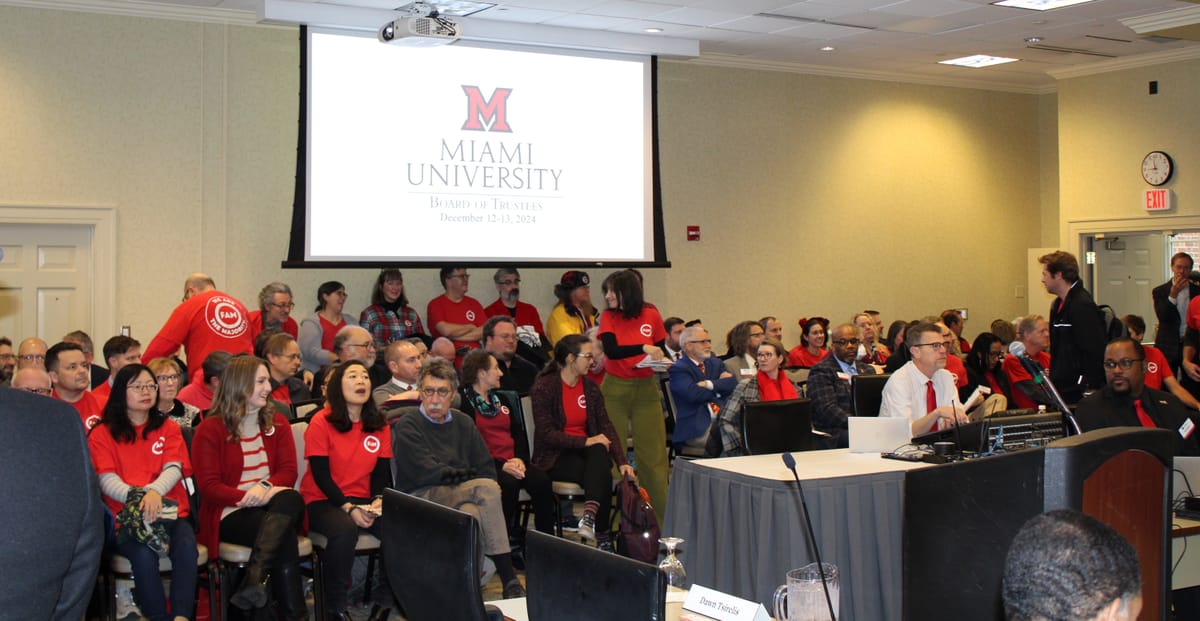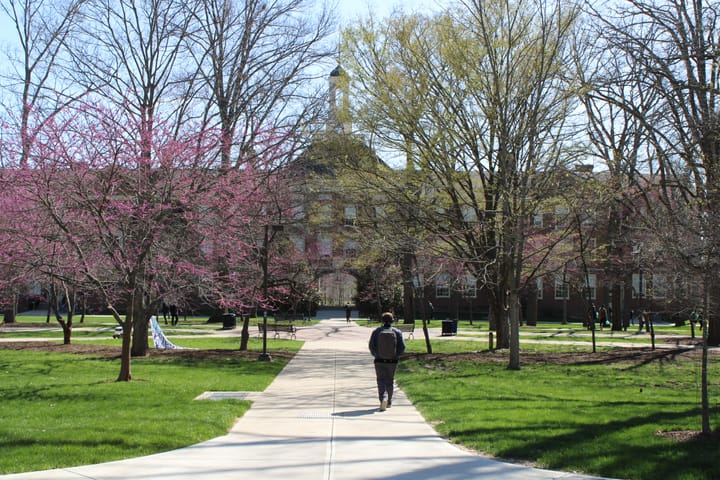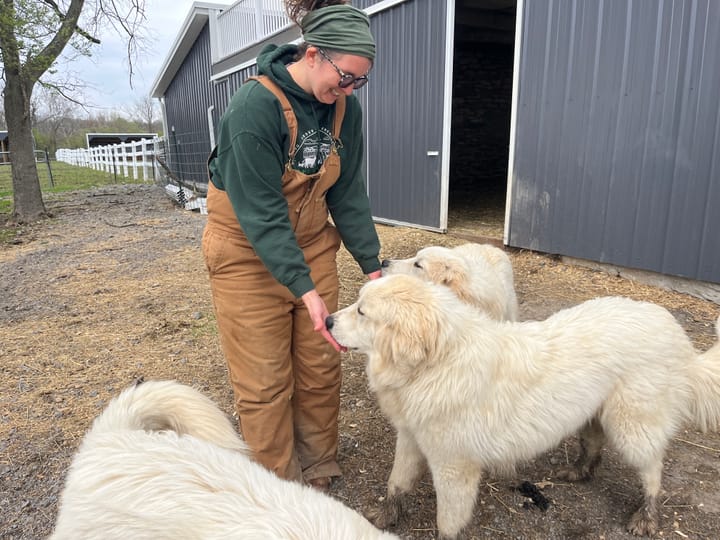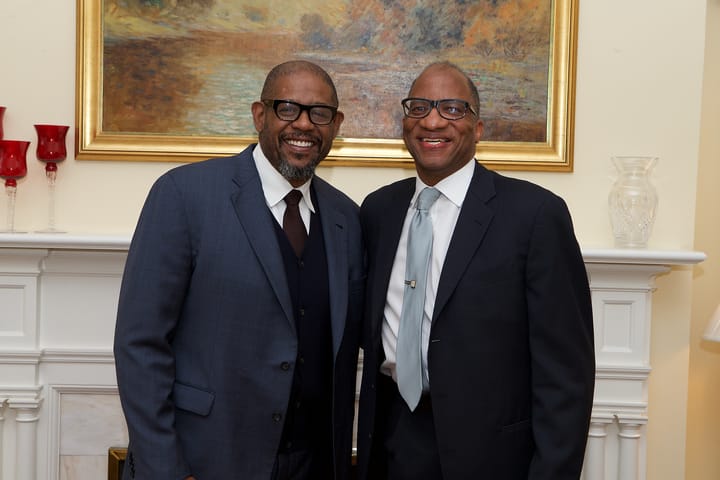Miami faculty and librarians celebrate first contract: How they got here
Early this month, Miami University's Board of Trustees voted to ratify union contracts with librarians and faculty. The journey to a contract has been years in the making for union organizers.

As the Covid-19 pandemic struck in early 2020, America’s colleges and universities were hit hard. Students were sent home for the spring semester, and classes were held largely online for the next year or more. Enrollment dropped, admissions went test optional and mental health declined nationally.
And at Miami University, the faculty unionized.
This April 3, Miami University’s Board of Trustees voted to ratify contracts with the Faculty Alliance of Miami’s (FAM) faculty and librarian bargaining units, 581 days after first sitting down at the bargaining table. While faculty leadership first went public with their unionization efforts in February 2022, the story of collective bargaining started almost a decade earlier during a conversation over beer and fries.
From advocacy to action
Cathy Wagner, an English professor, has been a voice for unionization for the past decade. In 2014, Miami’s regional campuses were undergoing a transformation to align with new state law regarding four-year educations. Before that, Wagner said, departments crossed campuses, but one of the changes implemented led to more differentiation between Oxford and regional faculty. At the same time, faculty were increasingly concerned about lacking a voice in decision making.
When Wagner heard that some regional faculty planned to meet with representatives of the American Association of University Professors (AAUP), she decided to join.
“We met at a pub and had beers and chicken wings and whatever with … the president and vice president at that point of Ohio AAUP,” Wagner said. “That was the beginning of a very long relationship.”
Months later, in April 2015, a crowd of 200 people gathered to hear from then-AAUP National President Rudy Fichtenbaum as Miami officially launched its own AAUP advocacy chapter.
Wagner was a founding member of the chapter, but she wasn’t the leader at the time. Professors Karen Dawisha and Keith Tuma served as Miami AAUP’s first co-presidents. Dawisha served as the first director of Miami’s Havighurst Center and was a fierce advocate for faculty rights, Wagner said, but she died in 2018.
“It was great to have Karen, who was such a powerful personality and unafraid person,” Wagner said. “She shared the vision that others of us had for believing in shared governance and academic freedom and fair treatment of faculty and economic security for faculty.”
While Wagner, Dawisha, Tuma and others discussed unionization with national AAUP leadership early on, they agreed that a campaign at the time would likely have been unsuccessful. Faculty members had tried and failed to unionize in 1984, and the failed attempt dampened morale around collective bargaining for decades.
Instead, AAUP spent the next five years focused on promoting shared governance and supporting university policies that members believed would positively impact academics and faculty workloads at Miami.
Then, in 2020, the pandemic hit, and things changed once more.
VAPs out, union in
On March 10, 2020, Miami announced that it would move classes online until mid-April, before extending the change through the end of the semester a week later. As uncertainty gripped students, faculty, staff and administrators alike, the university issued millions of dollars in refunds to students and began planning for a fall semester where no one knew what to expect.
One of the most impactful cuts made was the decision not to renew contracts for hundreds of visiting assistant professors (VAPs) across departments.
VAPs are hired on one-year contracts that can be renewed for up to five years. According to reporting by The Miami Student, the university opted not to renew the contracts as a cost-saving measure due to the pandemic. Faculty workloads increased as a result, and less than one in 10 respondents to a 2021 AAUP survey said they felt that upper administrators appreciated their additional work. One faculty member told The Student that he’d had panic attacks and lost sleep over the personal impacts losing the VAPs had on him.
The decision not to renew so many VAPs’ contracts added to a sense that faculty opinions weren’t being considered in decisions, Wagner said. Many faculty were concerned about what they saw as too lenient an approach to health and safety measures during the pandemic, as well as a lack of respect for perspectives in University Senate.
“It wasn’t so much the actual content of the decisions that were being made, but the fact that it felt like we were so powerless in relation to [administration],” Wagner said.
Theresa Kulbaga, professor of English and lead negotiator for FAM, agreed that decisions at the time felt top-down. In early 2020, she and other AAUP members began having one-on-one discussions with other faculty about the potential for unionizing. Because of the pandemic, most of those conversations were virtual.
“Nobody was on campus. Some people at AAUP thought that would be a bad thing or work against us, but I wonder if it was the opposite,” Kulbaga said. “It seemed to be a moment where people were yearning for connection and solidarity with their colleagues.”
By February 2022, Wagner, Kulbaga and the other organizers were ready to go public with the effort. Kulbaga said they knew by the time they launched that FAM would have the votes to unionize, and it was only a question of margin.
The launch meeting was well attended. Rachel Makarowski, a special collections librarian, wasn’t deeply involved at the time but had a conversation with Ginny Boehme, one of the lead organizers for librarians. Makarowski and some of her colleagues ended up holding a watch party at another librarian’s house to celebrate the unionization announcement.
“We were really excited, and I think we also felt a good bit of anticipation of what happens next,” Makarowski said. “I remember them saying, ‘Hey, we need help with various things’ … so I filled out a volunteer form.”
Despite the focus on VAPs, though, a key decision from the state would limit what FAM could do for the university instructors with the least job security and split the proposed bargaining unit in two.
Bargaining unit(s) approved, with conditions
One year after FAM formed, Ohio’s State Employment Relations Board (SERB) ruled that librarians and VAPs were ineligible to be represented by the same bargaining unit as teaching, clinical professors and lecturers (TCPLs), tenured, and tenure-track faculty. The university had previously filed an objection to including any non-tenure track faculty or librarians in the union, but SERB found that TCPLs were eligible.
At the same time, the state found that librarians, some of whom had been key organizers within FAM, could not bargain in the same unit as faculty.
Boehme, a science librarian who served as lead negotiator for FAM librarians, said they quickly re-filed for unionization as a separate unit under the FAM umbrella. When the faculty votes for unionization were finally counted in May 2023, two thirds were in favor. When librarian votes were counted that June, the support was unanimous.
“There’s a lot to be said for the high level of respect that I think we all feel for each other, and the high level of community bonding that we have,” Boehme said. “We have a whole bunch of solidarity among librarians, and I think it is really, really apparent with the turnout for the votes.”
While librarians quickly announced their intentions to form a separate bargaining unit, no additional plans to create a collective bargaining unit for VAPs have been formally announced in the two years since.
From organizing to bargaining
On Aug. 31, 2023, faculty members packed the room at Miami University’s Voice of America campus for a nine-hour marathon first day of bargaining.
By that time, Makarowski had joined FAM’s bargaining team, a group of a dozen faculty members and librarians who represented union interests at the table. Even though the contracts were separate, the librarians and faculty worked together throughout the negotiating process, and other members frequently sat in on the meetings.
Each bargaining day started an hour early for FAM members, Makarowski said. They would meet to talk strategy and decide what compromises they’d be willing to make on specific items. Much of the actual discussion on bargaining days happened in sidebar conversations, which she said were helpful to get a feel for management-side positions, and the process got easier to predict as everyone got to know each other.
“The librarian days were really a lot of fun, because we had so many librarians who would regularly attend that they in some ways became a part of the team,” Makarowski said.
Negotiating a first contract takes time — 465 days on average, according to one Bloomberg Law estimate. Faculty and librarians didn’t get raises while negotiations were ongoing, and salaries and benefits were some of the last items to be agreed upon.
As negotiations approached the 500-day mark, FAM began coordinating a protest at the December 2024 Board of Trustees meeting. Roughly 100 members packed the room. After several spoke, they handed out New Years Resolutions cards to the trustees and administrators, setting goals to approve the final contract quickly. Kulbaga remembers the day as one of her best memories from FAM.
Video by Sean Scott
“What’s so inspiring about it is the courage and bravery of my colleagues, some of whom had not come out to an action before, but they were starting to see that collective action works,” Kulbaga said.
Two months later, on Feb. 25, the faculty unit finally reached a tentative agreement. The next day, the librarians unit accomplished the same feat. On April 3, the board ratified the contracts at a special meeting in Columbus.
Next step, electing officers
As Wagner looks back on the past three years, she gets emotional. At times, she says, it felt like the whole union could fall apart if she took a step back, despite the support from dozens of her colleagues.
Now that she’s seen it through, she’s ready to let others lead.
“I feel really proud of us,” Wagner said. “I feel proud and happy to have been part of this process and delighted that we got all the way here … I never got into this because I really like being in leadership roles. It’s actually not that easy for me to do that, to put myself out in front.”
Kulbaga said she plans to stay deeply involved in the coming years as FAM moves into the implementation phase and looks forward to its second contract. She hopes to see some newer members step up now that the contract is agreed on, too.
The next step for both units is to hold leadership elections. FAM will have one shared president and vice president, plus a vice president for libraries. Members have until May 4 to make nominations for executive officers and representatives, which will require 10 signatures. FAM will announce the final ballots May 10, and the elections will be held June 4-10.




